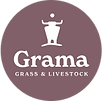
Why are cows grazing near homes and hiking trails?
We're here to
mitigate wildfires.
Read on to learn how...
Reducing Boulder County's Risk of Grassland Fires.
One Bite at a Time
A wildland urban interface (WUI) like Boulder is a high danger zone for wildfires destroying homes and communities. That's why government entities have partnered with regenerative farmers, like Grama Grass & Livestock, to help mitigate this area's risk of destructive fire.
Studies have shown cattle grazing initiatives reduce the grassland fuel that feeds catastrophic wildfires; and we've identified Wonderland Lake as an area that can benefit from these preventative efforts.
How Does Managed Regenerative Grazing Prevent Wildfires?
Unmanaged grassland overgrowth is prone to wildfire
With managed grazing, cows eat the grass overgrowth
As cows consume invasive, flammable grass species, we replenish healthier, safer, native grasses

%201.jpg)
How We're Helping
Less Fuel = Less Fire
After the Marshall Fires, local governments got to work at lowering our risk of another disaster. The cities are exploring methods to reduce wildfire risk to communities while keeping grassland ecosystems healthy.
The initiatives aim to reduce grassland growth, while also depositing nutrients on the land, supporting biodiversity, and kick-starting natural ecological cycles to create a more resilient ecosystem long-term.
Click here to learn more about the ongoing research and development being carried out by The City of Boulder, Boulder County Fireshed, and Grasslands Working Group. As well as the work lead by the City of Louisville.

Did You Know?
Historically, Boulder Grasslands Actually Depended on Fires to Thrive
Now, wildfires are more destructive when they do occur.
The solution?
Decreasing vegetation with managed grazing in the communities most at risk.
But today, fewer small fires means grasslands end up with overgrowth...
More woody intrusion...
And an increase in non-native, cool season, flammable grass species...
Want to Join The Efforts? Get Involved!
There's so much that the county is doing to prevent catastrophic fires — but still countless ways for you to help as well.
Vote with your dollars and purchase meat from Grama Grass & Livestock, to support these efforts this year and in the future.
Or, learn about how you can partner with us to start the process on your land.

Our Method
It's Not About The Cow...
It's About The How
Grama Grass and Livestock utilizes a specific type of grazing method called regenerative grazing.
This process involves moving the cattle frequently, with the help of our electric fence systems. Our intensive methods entail:
-
Emulating the migration of bison - the key to keeping Boulder's wildland healthy for milennia
-
Triggering natural processes that reduce growth of invasive species and promote growth of native grasses
-
Actively monitoring what each area of land needs, and adjusting our approach accordingly

© 2025 City of Boulder, Grama Grass & Livestock, and The Golden Hoof. All Rights Reserved. Privacy Policy
.png)

